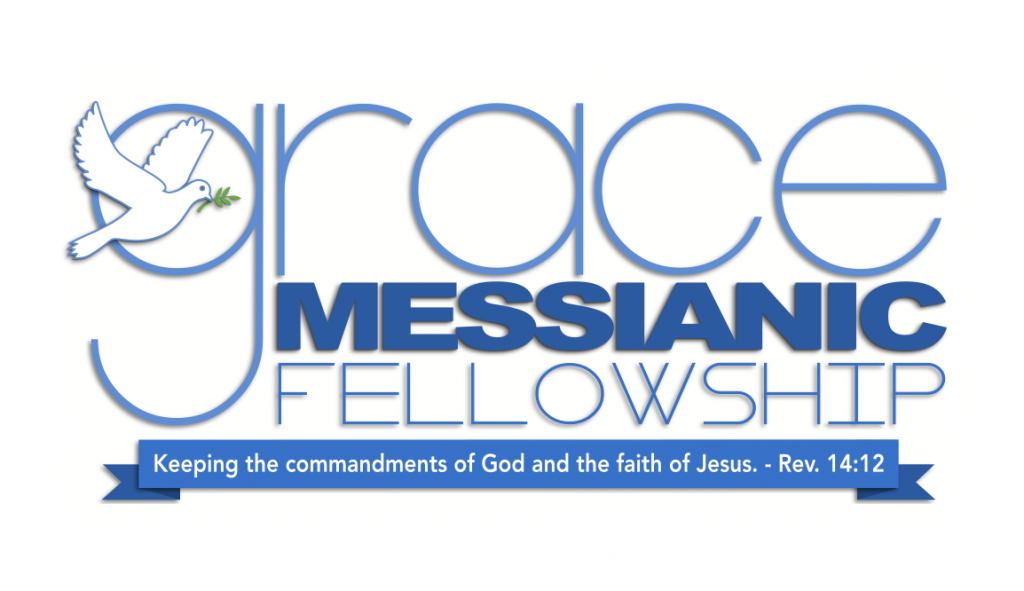By Art Cox
Evangelical Dispensationalism teaches that “The Church” began on the Day of Pentecost discussed in Acts 2, and that God birthed the Church separate and distinct from Old Testament Judaism. Its fullness and final achievement would be identified as the Gentile church composed of Christians.
Evangelical Dispensationalism teaches that the physical children of Abraham (Israelites) are God’s people, but that God also has another people made up primarily of Gentiles (non-Israelites) called the Church. Those who have come to believe in Jesus as Messiah are considered the Bride of Christ.
It is taught that these two groups, Jews and Gentiles, have remained separate according to the plan and will of God, that God’s plan is to work through the Gentile Church until the rapture. God will then turn His attention back to Israel during the tribulation to draw Israel back to Himself.
But was there ever a plan for a Gentile Church separate from the nation of Israel? And did the Church begin at Pentecost in Acts 2? After all, the Lord did not say, “Stay in Jerusalem till you receive the Church,” but “till you receive power (the Holy Spirit).”
In Acts 7, Stephen gives an account of the people of Israel in the wilderness. In verse 38 Stephen calls Israel “the church in the wilderness” (King James Version).
Abraham was the first called-out one
The Israelites throughout the Old Testament were referred to as the “church” in the Septuagint. The Septuagint is the Greek translation of the Hebrew Old Testament. It dates to about 200 years before Christ. The translators had long considered the congregation of Israel as the Church. When the Septuagint uses the Greek word ekklesia, it refers to the congregation or assembly of Israel.
So when did the Church start? The word “church” is translated from the Greek word ekklesia, which means “the called-out ones.” Who was the first called out one? And called out of what? Certainly we are called out of the world’s ways and sin. In addition, Revelation 18:4 calls God’s people out of Babylon. Babylon means “confusion.” Babylon was the beginning of all organized false religion, led by the first anti-christ, Nimrod (Gen. 11). First Corinthians 14:33 says that God is not the author of confusion, so the called-out ones are called out of world ways, sin, and the confusion that comes from Christianizing pagan ways.
Now who was the first called-out one, that is, called out of Babylon? Abraham was called out of Ur of the Chaldeans, out of Babylon. Abraham was called out of Babylon by the same voice that calls today “Come out of her, My people” (Rev. 18:4).
Abraham and his descendants were the first called-out ones in the Bible. This was the “Birth of the Church,” Abraham and his descendants, Israel. Israel is the “Church.”
Pentecost was not the birth of the Church. It was the empowering of the Church to begin the world of the restoration of Israel. There were no Gentiles mentioned in Acts 2 on the Day of Pentecost. The crowd was made up of Israelites from every nation and converts to Judaism from Rome. It was a taste of what God was going to do in gathering the kingdom back to Israel.
The rejection of Jesus by the religious leaders would not stop the restoration of the kingdom to Israel, it would only reveal how God was going to include the Gentiles into the faith. However, this inclusion of Gentiles would not take place immediately. The Church with messiah as the head would continue to grow with almost exclusively Israelites. God would continue to build His Church from among the Israelites for approximately twenty years before fully opening the doors to the Gentile world as discussed in Acts 15. This was to keep the Israelite identity of the Church. The Gentiles would not make up the identity of the Church, they would be grafted into the Church. The Gentiles would not replace Israel, they would become part of the commonwealth of Israel (Eph. 2:12-13).
It was not until later that the Gentile believers would become known as the Church apart from Israel. That happened after the Church became apostate under Roman Catholicism. The fact that believing Israel (that is, from all twelve tribes and those grafted in) is the only true people of God is a theme throughout the Bible.
Yes, God is a God of the Gentiles, but this refers to Him as their Creator, not to covenental promises. In covenantal promises, Gentiles are grafted in, adopted, no longer Gentiles. Ephesians 2:11-13 says that you were at one time in the past Gentiles are no longer through the sacrifice of Messiah.
Jeremiah 31:31 prophesies of the “new covenant” that Jesus confirms when He says, “Drink, this is my blood of the new covenant.” This covenant is with the House of Israel (the northern kingdom) and Judah (the southern kingdom). When Jeremiah spoke of this new covenant with Israel, Israel had already been conquered and scattered by Assyria. Jeremiah knew that God would someday regather the scattered tribes of Israel; then the twelve tribes would be together again, their blindness would be lifted and David’s dynasty would be restored under Messiah. Before Jesus ascension, the disciples asked, “Will you at this time restore the kingdom of Israel?” (Acts 1:6). He did not say the kingdom wouldn’t be restored, He said that the time was not for them to know.
This new covenant spoken of did not mention Gentiles, so how do Gentiles get included? By becoming part of Israel, grafted in or adopted. I’m not saying Gentiles need to convert to unbelieving Judaism through ritual ceremony. I am saying Gentiles are grafted into believing Israel when they put their faith in Yeshua (Jesus) (Romans 11:17-20). Gentiles who put their faith in Israel’s Messiah are grafted into Israel, but they do not replace Israel.
Revelation 21 gives a beautiful description of the Bride, the wife of Messiah; in verses 9 and 10, she is unmistakably identified. She comes down out of heaven not as a Gentile Church, but as the holy city of Messianic believers, New Jerusalem.
The New Jerusalem is not described with the architecture of the Gentiles, but as a truly restored kingdom of Israel. There is a wall around the city with twelve foundations and twelve gates built on those foundations. On the foundations are written the names of the twelve apostles (all Israelites). The names above each gate are the names of the twelve tribes of Israel. In other words, one gate for passage is for the tribe of Asher, another for Benjamin, etc. However there is no gate for Gentiles. That is because Gentiles will be included into a particular tribe and will use the gate pertaining to that tribe. Ezekiel says that Gentiles will be connected to whichever tribe pertains to them (Ezek. 47:23).
The idea of a separate and distinct Gentile Church replacing or existing in addition to the biblical nation of Israel is counterfeit. I’m not say that true Bible-believing, born again believers are counterfeit. I’m say they don’t really know who they are, they don’t relize they are a part of Israel. They are no longer foreigners to the promises and laws of Israel. Israel’s future is our future and the laws God gave Israel are for us to obey also.
The only Biblical identity of the “Church” is the nation of Israel
God is calling His people to expose this counterfeit Gentile Church theology which is a doctrine of Babylon, or of the daughter of Babylon. In Revelation 17, Babylon is described with imagery that leaves one with little doubt that it is a clear reference to the Roman Catholic Church that changed times, laws and seasons.[1] The Catholic Church is responsible for changing and re-identifying the “faith” that Yeshua (Jesus) charged His disciples to take to the world.
Shortly after the apostles died off, the true Church became less and less Hebraic, and more and more Gentile. Pagan ways would replace God’s ways until finally Rome would re-identify the Church as something separate and distinct from biblical Israel. The Empire of Rome would nationalize the Church and mingle its pagan ways. This would begin the Roman Catholic Church.
Moreover, Revelation 17:5 says this false religious system is called a mother, and has daughters would at least resemble their mother. They look somewhat different, claiming to be their own person, separate and distinct, but when the veil is lifted, one can see that the daughters are much like the mother. The denominations of Protestantism that hold on to the unbiblical teachings of the Catholic Church are the daughters referred to; they are the extension of Catholicism.
Yet Protestantism claims to be separate and distinct from Catholicism. In some ways that is true. Protestantism has restored the truth that a person can only have eternal life by repentance and dependence on the cleansing of our sins by Yeshua’s (Jesus) death on the cross for us. But regarding its recognition of and affiliation with Israel and the laws of Israel, there is no difference. Protestantism has followed the confusion its mother introduced into the Church by changing the Sabbath from Saturday to Sunday,[2] by replacing the biblical Holy days which teach about Messiah’s first and second comings (Passover, Tabernacles, etc.) with pagan holidays that have their origin in the worship of pagan fertility goddesses and the birth of the sun-god on December 25 (Easter, Christmas, etc.)[3] and by teaching against the Biblical dietary laws. Protestantism says the Bible is the only authority for knowing God’s ways, yet Protestants embrace the same theology as the Catholic Church when it comes to these things. I pray that we take another look at our relationship to biblical Israel, God’s laws, and the restoration of the kingdom of Israel.
The only Biblical definition of the Church is the biblical nation of Israel. I’m not referring to the unbelieving modern-day state of Israel. What I’m referring to is that remnant of Israel that has always been faithful (Rom. 11:5) Those Messianic Israelites , “to which the twelve tribes hope to attain as they earnestly worship night and day” (Acts 26:7). They are working for the restoration of the kingdom of Israel.
It is with loving prayer we must reach out to those whom God is calling back to biblical worship. By the call and will of God, I believe the true disciples of Messiah will renounce their claims to an identity and purpose that is separate from the biblical nation of Israel.
The kingdom of Israel will be restored, and it will be made up of the literal blood descendants of Abraham who believe in Messiah and of those who are grafted in or adopted sons and daughters of Abraham. Then all believing Israel will be saved. Amen.
[1] Babylon Mystery Religion, by Ralph Woodrows
[2] From Sabbath to Sunday, by Samuel Bachiocchi
[3] Two Babylons, by Alexander Hislop





